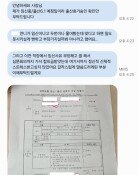China, N. Korea prompt Japanese minister's remarks on nuclear armament
China, N. Korea prompt Japanese minister's remarks on nuclear armament
Posted August. 08, 2016 06:54,
Updated August. 08, 2016 07:26
Japan's new Defense Minister Tomomi Inada created a stir in Japan and other Northeast Asian countries by noting in a press interview on Friday that there is no principle that stops Japan from possessing nuclear weapons. "Japan's constitution (that states Japan should not use violence but keep whatever is necessary for self-defense) does not specifically define a minimal amount of necessary weapons," she said while answering questions on whether Japan should have nuclear weapons in the press interview. Prime Minister Shinzo Abe quickly tried to straighten out her remark by saying, "There will never be nuclear weapons in Japan or plans to make them." However, the defense minister's utterance seems to partly reflect Japan's atmosphere.
Japan can make nuclear weapons anytime if it wants since it is equipped with 47.8 tons of plutonium for electricity generation, which can make 6,000 nuclear bombs. Yet, as a victim of nuclear bombing, Japan has not spoken of making nuclear weapons for themselves. With U.S. Republican presidential candidate Donald Trump's statement claiming that Japan and Korea should now protect themselves on their own with nuclear armament, Japan's rightist politicians are raising their voice to convince everyone else to "consider nuclear armament."
The rightist argument is becoming stronger in Japan, while China is simply sitting by and watching North Korea developing nuclear weapons and ballistic missiles that now can fly to Japan's exclusive economic zone. U.S. Vice President Joe Biden sent a warning to Chinese President Xi Jinping in June, saying that if China steps back from the North Korean nuclear issue, that gives Japan a good reason to arm itself with nuclear weapons. American political magazine Politico reported that among Korea, Japan, and Taiwan, Japan is the most serious about nuclear armament. Against this backdrop, Japan will more vigorously push forward with its pursuit of nuclear sovereignty two years later at the end of the 30-year-old U.S.-Japan cooperation on Nuclear Energy.
"Let us increase our military power that equals nuclear armament," some Korean politicians proposed in the National Assembly on Thursday right after North Korea fired the Rodong missile. South Korea is not going to tolerate China's threats against the THAAD deployment decision while at the same time refusing to take an action against North Korea's missile launch.
"Whether the Sino-Japanese War was an invasion is not a matter of fact but a matter of viewpoint," Japanese Defense Minister Inada noted. "You cannot simply say that it was an invasion." Japan claims that the war began in 1937 when Japan attacked China military for shooting at the Japanese military in Beijing, however that is false. Inada is an extreme rightist politician who makes such comments as "'comfort women' were legal" without hesitation. Her denial of Japan's invasion in the Sino-Japanese War is condemnable, but it is China's hegemonism that is giving Japan's far rightists opportunities to become stronger.
허문명논설위원 angelhuh@donga.com
Headline News
- N. Korea launches cyberattacks on S. Korea's defense companies
- Major university hospital professors consider a day off each week
- Italy suffers from fiscal deficits from ‘Super Bonus’ scheme
- Inter Milan secures 20th Serie A title, surpassing AC Milan
- Ruling and opposition prioritize spending amid tax revenue shortfalls







